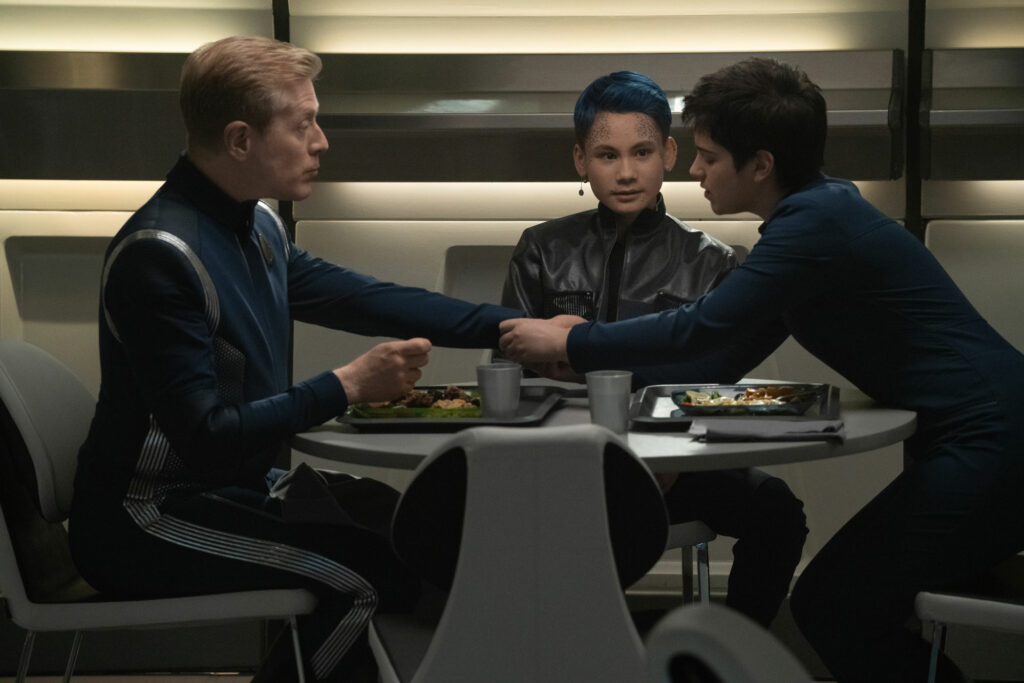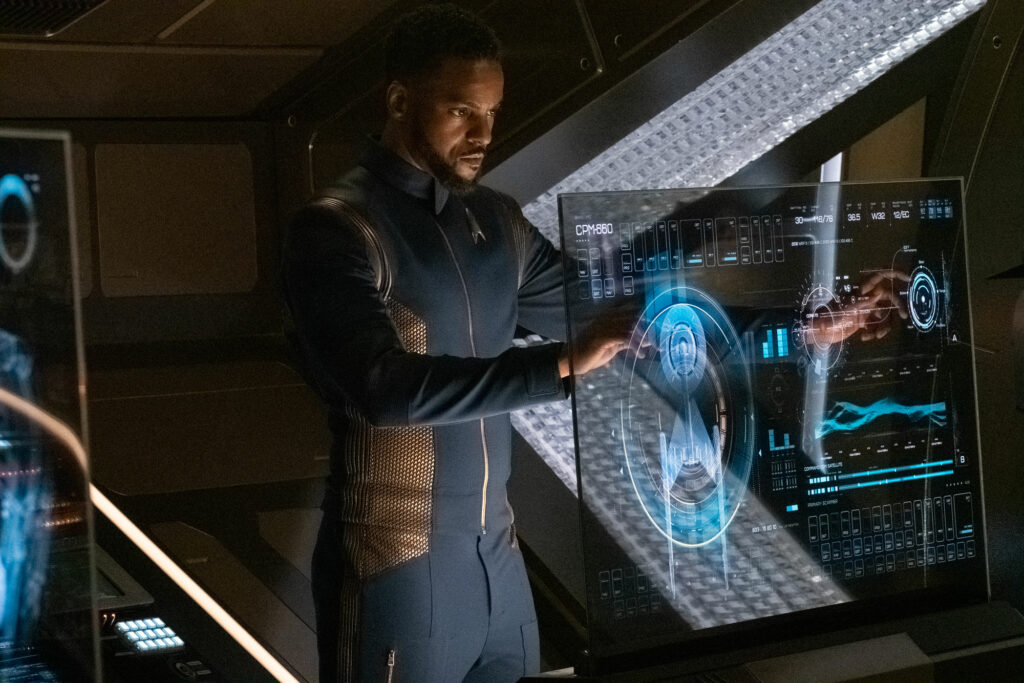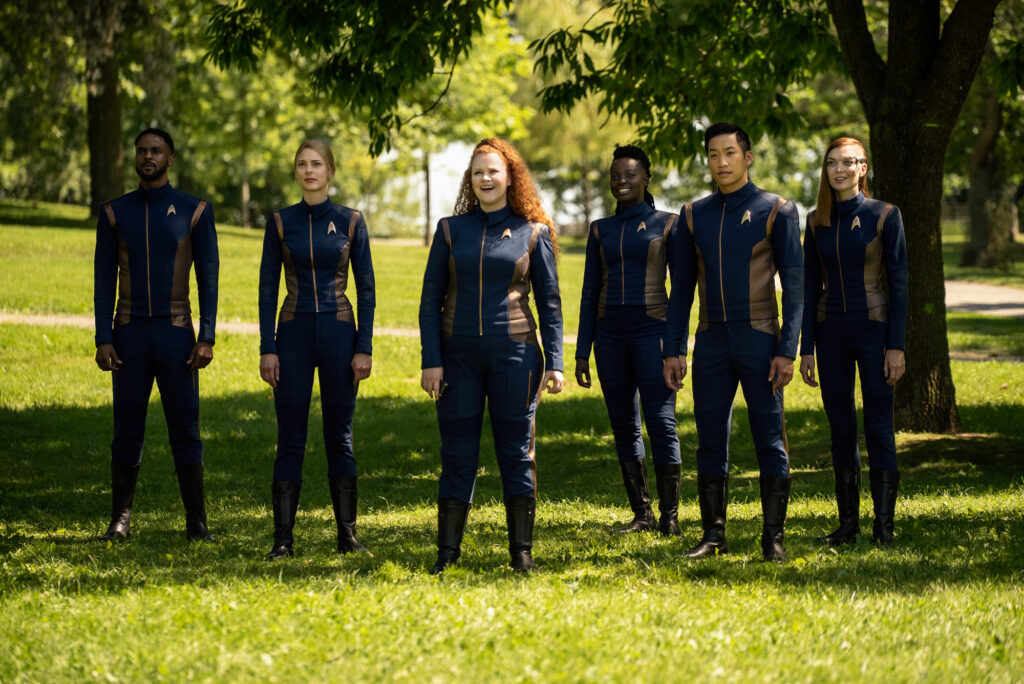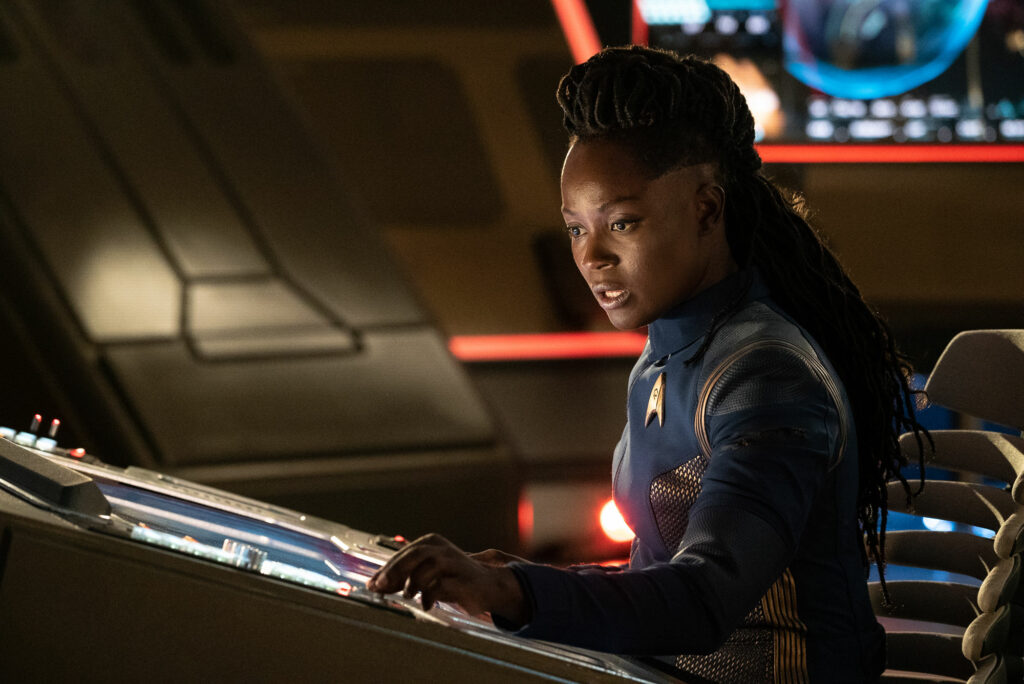
Star Trek: Discovery goes boldly towards an inclusive on-screen future
Photo courtesy of CBS All Access.
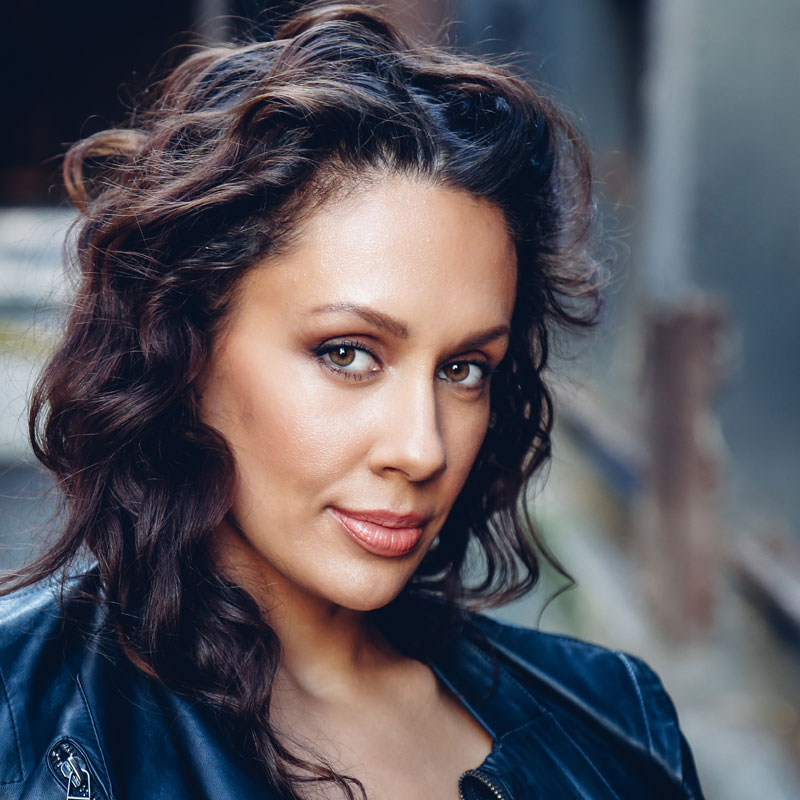
Samora Smallwood
I was absolutely thrilled when I received the call inviting me to join the cast of Star Trek: Discovery. As an actor, you are happy for work and any call about a booking is a cause for celebration, but this booking on CBS All Access’s Star Trek: Discovery was extra special to me for several reasons.
The first is personal: my mom has been a huge Star Trek fan since I was a child and every time I auditioned for the show (there were a few auditions!) I can still picture her face when I gave her the news. The second reason is super personal: the Star Trek franchise means so much to diversity and inclusion. As a biracial Black woman and ACTRA Toronto’s Diversity and Inclusion Committee’s co-chair, real on-screen representation is my heart and soul. And nobody does it better than Star Trek.
Representation serves as an invaluable tool for parents of children of colour in their task of explaining both the inequalities and possibilities they will encounter in this world.
I still vividly remember my mom sitting me down to explain the impact of Star Trek’s character Nyota Uhura, originally played by Nichelle Nicholls, and what it meant to have a Black woman front and centre, especially at a time when diversity on screen was extremely rare. If I’m honest, I was too young to fully understand the lesson, but that’s how representation serves as an invaluable tool for parents of children of colour in their task of explaining both the inequalities and possibilities they will encounter in this world.
Akela Cooper, a Black woman and writer of the upcoming, highly anticipated new Star Trek: Strange New Worlds series, spoke of watching Star Trek with her parents as a child and how much it meant to them because the series showed a future in which “Black people had made it.” How moving is that? It just demonstrates that real representation empowers, emboldens and unites. It is hugely powerful.
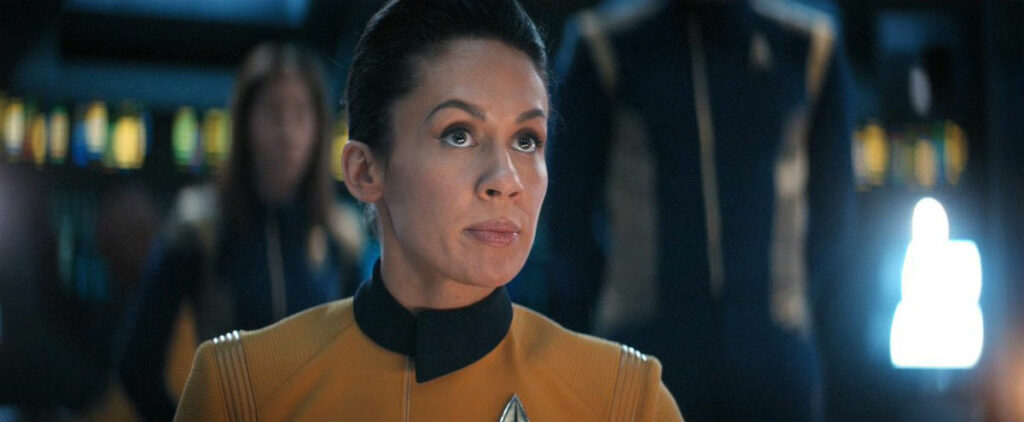
Since its launch, Star Trek: Discovery has spent $257 million on production in Ontario and has created almost 5,000 local jobs, over half of which are for cast and crew.
Star Trek: Discovery is also important to Toronto and Ontario because of the abundance it brings to our local economies and the performing arts community. Since its launch, Star Trek: Discovery has spent $257 million on production in Ontario and has created almost 5,000 local jobs, over half of which are for cast and crew. It makes me immensely proud a show of Star Trek: Discovery’s extraordinary calibre knows it can rely on our craftspeople and actors in creating truly epic storytelling.
CBS Studios President David Stapf acknowledges, the “Toronto area has provided series like Star Trek: Discovery with diverse and appealing locations, great production infrastructure, and crafts expertise that cannot be easily found. I’ve said it before, and I’ll say it again; there is nothing this province can’t provide, and the people here can’t create.”
My experience on the Star Trek: Discovery set was so special because a show like this offers actors a chance to become better. I play Lieutenant Amin, a member of the USS Enterprise crew, alongside Anson Mount, Rebecca Romijn, Ethan Peck and ACTRA members Hanneke Talbot and Chai Valladares. Our storyline is a high-stakes one involving joining the original Discovery crew of actors such as Sonequa Martin-Green, Doug Jones and Michelle Yeoh. Working with these talented, poised and powerful actors is a huge blessing.
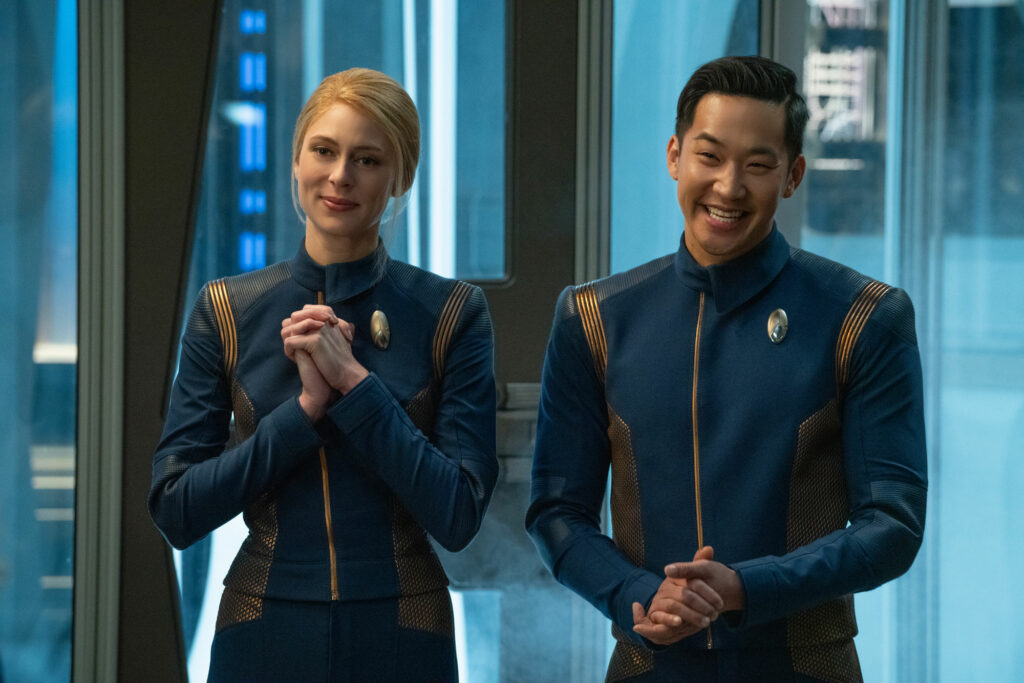
As an actor, being a part of a story of extreme conflict, which included a pyrotechnics crew, green screen and, of course, the glorious USS Enterprise, is a masterclass in television production excellence.
As an actor, being a part of a story of extreme conflict, which included a pyrotechnics crew, green screen and, of course, the glorious USS Enterprise, is a masterclass in television production excellence. It was incredibly touching to represent a biracial or “ethnically ambiguous” character – who is ambitious, smart, driven and highly skilled — front and centre on the beloved Enterprise bridge. Real representation means writing characters and casting actors of infinite diversity in infinite combinations. That is the Star Trek way.
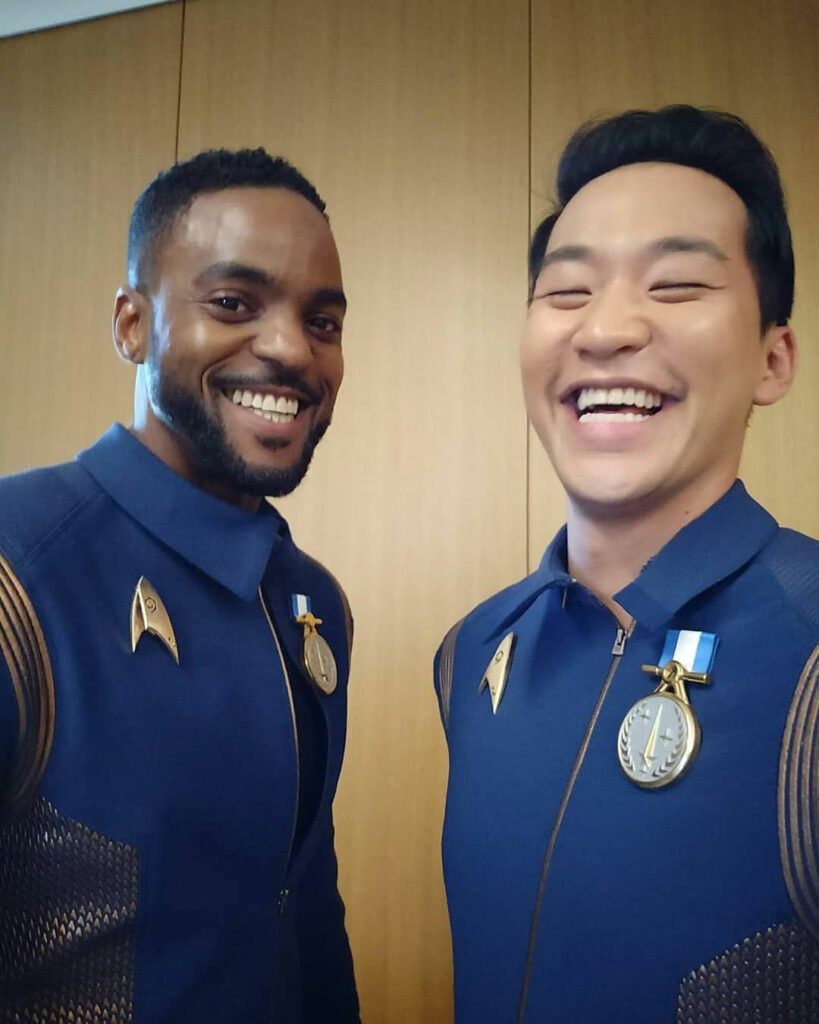
We need the most powerful among us to boldly go into that inclusive future on screen, which in turn informs real change and inclusivity in the real world.
Star Trek was “doing diversity” before it was cool and continues to push the envelope. ViacomCBS recently announced an international “No Diversity, No Commission” production policy aimed at elevating new diverse voices. It means productions will have to adhere to diversity guidelines before budgets are approved and production can begin. This is huge. We all remember Frances McDormand’s simple plea in her Oscar winner’s speech: “Inclusion Rider.” We need the most powerful among us to boldly go into that inclusive on-screen future, which in turn informs real change and inclusivity in the real world.
The premiere episode of Star Trek: Discovery season three features two strong Black lead actors. For diverse performers, it matters to see a story being led by diverse characters with plot-changing agency. A recent episode featured something we haven’t seen before: a romance between a non-binary character and a trans character. Imagine the impact this has on members of those traditionally marginalized communities. The power of screen entertainment is immeasurable.
Star Trek: Discovery Executive Producer and Director Olatunde Osunsanmi (who directed my episodes and the stunning season three opener) had this to say about the work Star Trek: Discovery is doing: “Inclusion is one of those things that needs to be nurtured, cared for, grown, and constantly maintained. You can never let your guard down around it, otherwise, it could wither and decay. It is important to be constantly vigilant around it. So, we continue to work on it every day.”
May this sentiment live long and prosper.
Samora Smallwood is an award-winning performer, writer, feminist and activist who has a passion for telling fresh stories and promoting diversity on screen and behind the camera. Her acting credits include: Star Trek Discovery, Star Trek Short Treks, The Expanse, Coroner, Shadowhunters, Frankie Drake Mysteries, Daughter Dearest, Counting on Christmas and Queen of the Morning Calm. In 2020, Samora was nominated for the Best Series Ensemble ACTRA Toronto Award for Tokens. Samora is a member of the ACTRA National Diversity & Inclusion Committee and founder of The Actors Work Studio in Toronto. Samora is of West African and Caucasian descent, and speaks English, French and Spanish.
